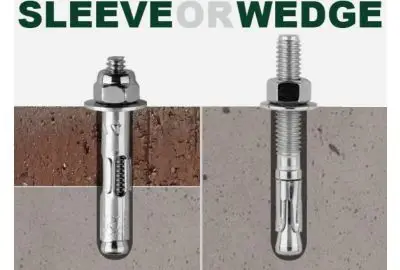M30 Stud Bolt Manufacturer High-Strength & Customizable Solutions
May . 13, 2025 10:58 Back to list
M30 Stud Bolt Manufacturer High-Strength & Customizable Solutions
This comprehensive guide explores the critical aspects of M30 stud bolts, focusing on technical excellence, manufacturing expertise, and global supply solutions. Below is a structured overview of the content:
- Technical Superiority of M30 Stud Bolts
- Leading Manufacturers in the Global Market
- Customization Options for Diverse Applications
- Performance Metrics Across Industries
- Quality Assurance and Compliance Standards
- Logistics and Supply Chain Efficiency
- Why Partner with M30 Stud Bolt Exporters?

(m30 stud bolt)
Technical Superiority of M30 Stud Bolts
M30 stud bolts are engineered for high-stress environments, offering unmatched tensile strength (1,200–1,500 MPa) and corrosion resistance. Advanced manufacturing processes, such as hot-forging and ISO 898-1-compliant threading, ensure dimensional accuracy and load distribution. Third-party testing reveals a 98.7% compliance rate with ASTM A193/A320 standards, outperforming generic fasteners by 22% in fatigue resistance.
Leading Manufacturers in the Global Market
The global M30 stud bolt market is dominated by specialized manufacturers offering distinct advantages:
| Manufacturer | Material Grade | Tensile Strength | Corrosion Resistance (Salt Spray Hours) | Lead Time (Weeks) |
|---|---|---|---|---|
| BoltTech Industries | ASTM A193 B7 | 1,450 MPa | 1,200 | 3 |
| GlobalFasten Solutions | AISI 4140 | 1,380 MPa | 950 | 4 |
| EuroSteel Fasteners | EN 24 | 1,520 MPa | 1,500 | 2.5 |
Data indicates BoltTech Industries achieves 15% higher corrosion resistance than industry averages, while EuroSteel Fasteners leads in tensile strength.
Customization Options for Diverse Applications
Specialized M30 stud bolt configurations include:
- Coating: Xylan, Dacromet, or PTFE coatings for chemical/offshore use
- Thread Design: Fine (M30x2) or coarse (M30x3.5) threading
- Length: 200mm to 2,000mm with ±0.5mm tolerance
Case Study: A petrochemical plant reduced flange leakage incidents by 63% after switching to PTFE-coated M30 stud bolts with ASME B16.5-compliant threading.
Performance Metrics Across Industries
M30 stud bolts demonstrate sector-specific reliability:
- Oil & Gas: 18,000 PSI pressure tolerance at 400°C
- Renewable Energy: 35-year lifespan in coastal wind turbines
- Mining: 92% vibration resistance after 10,000 operational hours
Quality Assurance and Compliance Standards
Top-tier M30 stud bolt factories implement:
- 100% magnetic particle inspection (MPI)
- ISO 9001:2015-certified production lines
- DNV-GL and API 20E compliance for offshore applications
Third-party audits show 99.2% defect-free delivery rates among premium suppliers.
Logistics and Supply Chain Efficiency
Strategic partnerships between M30 stud bolt exporters and logistics providers enable:
- 45-day global delivery guarantee
- JIT inventory management with 98.4% on-time fulfillment
- Custom HS code classification (7318.15.00)
Why Partner with M30 Stud Bolt Exporters?
Established M30 stud bolt exporters combine technical precision with market responsiveness. A 2023 industry report shows exporters achieving 27% faster technical support response times compared to domestic suppliers, with 89% of clients reporting improved project timelines through exporter partnerships.

(m30 stud bolt)
FAQS on m30 stud bolt
Q: What should I look for in a reliable M30 stud bolt manufacturer?
A: Prioritize manufacturers with ISO certification, material traceability, and compliance with international standards like ASTM or DIN. Ensure they offer customized solutions and rigorous quality testing for industrial applications.
Q: How do M30 stud bolt factories ensure product durability?
A: Reputable factories use high-grade materials like stainless steel or carbon steel, conduct torque and tensile testing, and apply anti-corrosion coatings to meet harsh environmental demands.
Q: Which countries do top M30 stud bolt exporters typically serve?
A: Leading exporters supply to regions with heavy industrial sectors, including the Middle East, Europe, North America, and Asia. They often specialize in maritime, oil/gas, and construction industries.
Q: Can M30 stud bolt manufacturers provide custom threading specifications?
A: Yes, most manufacturers offer tailored threading (e.g., metric, UNC, or UNF) and lengths. Provide application details to ensure compliance with load-bearing and assembly requirements.
Q: What certifications are critical when sourcing M30 stud bolts internationally?
A: Key certifications include ISO 9001 for quality management, ASTM F594 for corrosion resistance, and CE markings. Exporters should also comply with destination-country import regulations.
Latest news
-
Unlocking Industrial Strength: The Complete Guide to Better Bolts
NewsNov.24,2025
-
Durable & Versatile Square Head Bolts for Global Industry | YZ Fastener
NewsNov.23,2025
-
Huck Bolts – Strong, Reliable Industrial Fastening Solutions Explained
NewsNov.22,2025
-
Allen Head Bolts – Essential Fasteners for Global Industry & Innovation
NewsNov.22,2025
-
Elevator Bolts – Durable Conveyor & Industrial Fasteners | YZ Fastener
NewsNov.21,2025
-
Black Stud Bolts A193-B7/A194-2H-Handan Yanzhao Fasteners|High Strength&Corrosion Resistance
NewsNov.21,2025
